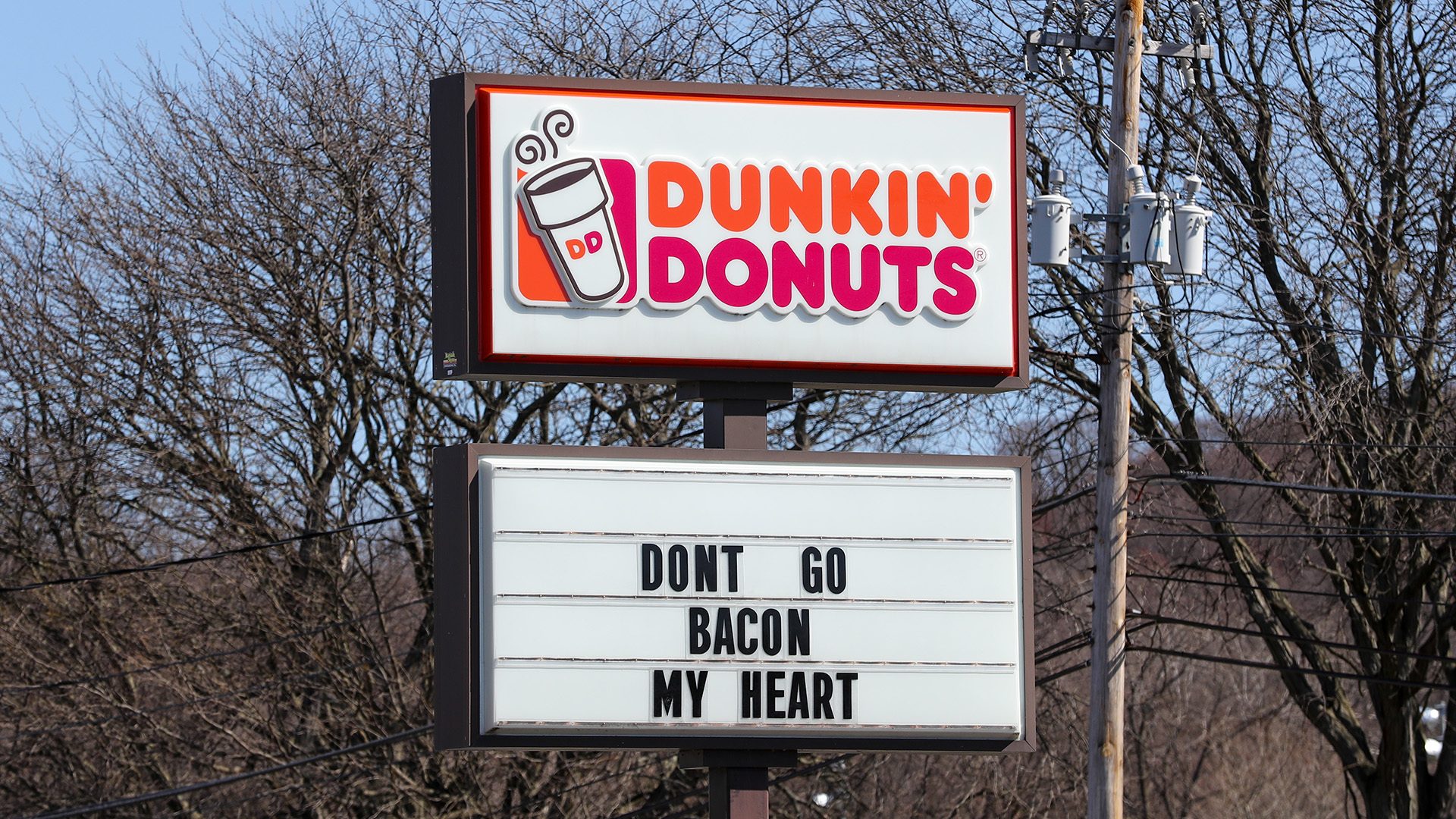
Simone Del Rosario: Conservatives want to give Dunkin Donuts the Bud Light treatment.
Calls to boycott the coffee giant’s more than 13,000 locations are splattered across social media with the hashtag #boycottdunkindonuts.
It all started when Chris Pavlovski, the CEO of Rumble, YouTube’s conservative counterpart, said Dunkin didn’t want to advertise on his site because of its “right wing culture.”
His post reveals what appears to be a private email with someone from Dunkin’s parent company Inspire Brands. The email says: To be honest, I would be opposed to showing up on the current version of the platform – the right wing culture of the site is too polarizing from a brand suitability standpoint today.
To be clear, Rumble pitched Dunkin because apparently “Rumble over indexes with coffee consumption.”
Chris Povlovski: If you’re an advertiser and you don’t want to advertise on Rumble or X that’s totally fine you have the option to do that.
Simone Del Rosario: And he has the option to out you for it.
Rumble is also involved in a separate antitrust lawsuit led by X claiming advertisers are collectively boycotting conservative sites. Search “Elon Musk” at SAN.com or the Straight Arrow News app for our story on that.
That’s right, back to Dunkin.
Conservative boycotters hope America chooses not to run on Dunkin. They’re a force to be reckoned with. Bud Light still hasn’t recovered from its decision to do a brand partnership with transgender TikTok star Dylan Mulvaney more than a year ago.
But will a dunk on Dunkin be as successful?
We tapped former Anheuser Busch executive Anson Frericks, who was critical of Bud Light’s botched boycott response.
He said boycotts need two things to be successful.
Anson Frericks: One is when a, a company gets involved in sort of like social political issues that alienate their customer base, customers are going to leave if there’s easily available options to replace that option. And then two, if they feel like they’re actually having an impact. Now in this case for Dunkin’ Donuts, there’s definitely easily available options that are not Dunkin’ Donuts. People can go across the street to 7 -Eleven to get coffee. They can go to local coffee shops, local donut shops. So there’s readily available other options that are there. And I think some customers they will leave. So that’s not good for Dunkin. But I don’t think that this is one’s going to be sustained like the Bud Light one. I Bud Light sales are still down 30 % the year after that they partnered with Dylan Mulvaney, partly because people felt that they had an impact. And that’s because Bud Light and Anne Heser Bush are publicly traded companies and their data is released on a quarterly basis about how their sales were impacted. And also is released on a weekly basis because there are organizations that get the grocery store data, they get convenience store data, and they can show that the sales are down. Dunkin on the other hand is a privately held company. It’s owned by Inspire brands, so they don’t have to report how sales are doing on a quarterly basis. And since most of their products are sold through their own stores, there’s not easily or readily available data that’s going to show the impact of sales. That’s gonna think starve this story of sort of the news cycle and the news media unfortunately. And probably lucky for Dunkin that this is probably going to die out, although in the future, I think they should be more careful not get involved in these sort of situations and basically say that they’re not going to advertise to half their population because they are going to lose some customers. I just don’t know for how long.
Simone Del Rosario: In Frericks opinion, Dunkin Donuts should not stay silent and try to let this blow over.
Anson Frericks: I think what Duncan can do is just come out and be super clear early on and say, guys, we made a mistake. You I don’t know who did this at Dunkin’ Donuts where they said, you know, we don’t want to associate with kind of right wing media. You just say, hey, listen, we want all customers. We’re Dunkin’ Donuts. We don’t care what political spectrum you are. We want people that love our coffee and love our brands. I think as long as they do that, I think this will blow over pretty quickly. And then they just need to be clear moving forward that they’re going to advertise to all their customers across whatever platforms those might be.
Simone Del Rosario: As for concerns Dunkin might have that its ads pop up with content they feel hurts their brand image, Frericks says there are always ways around that.
Anson Frericks: They should just be like very simple on Rumble. Like, Hey, we want to be on Rumble, but we want to advertise on videos about people that are eating donuts or drinking coffee.
You don’t have to mention Alex Jones. You don’t have to mention the other people. Just be clear about the videos that you do want to have. And then, if you want to avoid certain more sort of political type figures, that’s okay. They can avoid certain political figures, but I wouldn’t necessarily avoid sort of like platforms.











